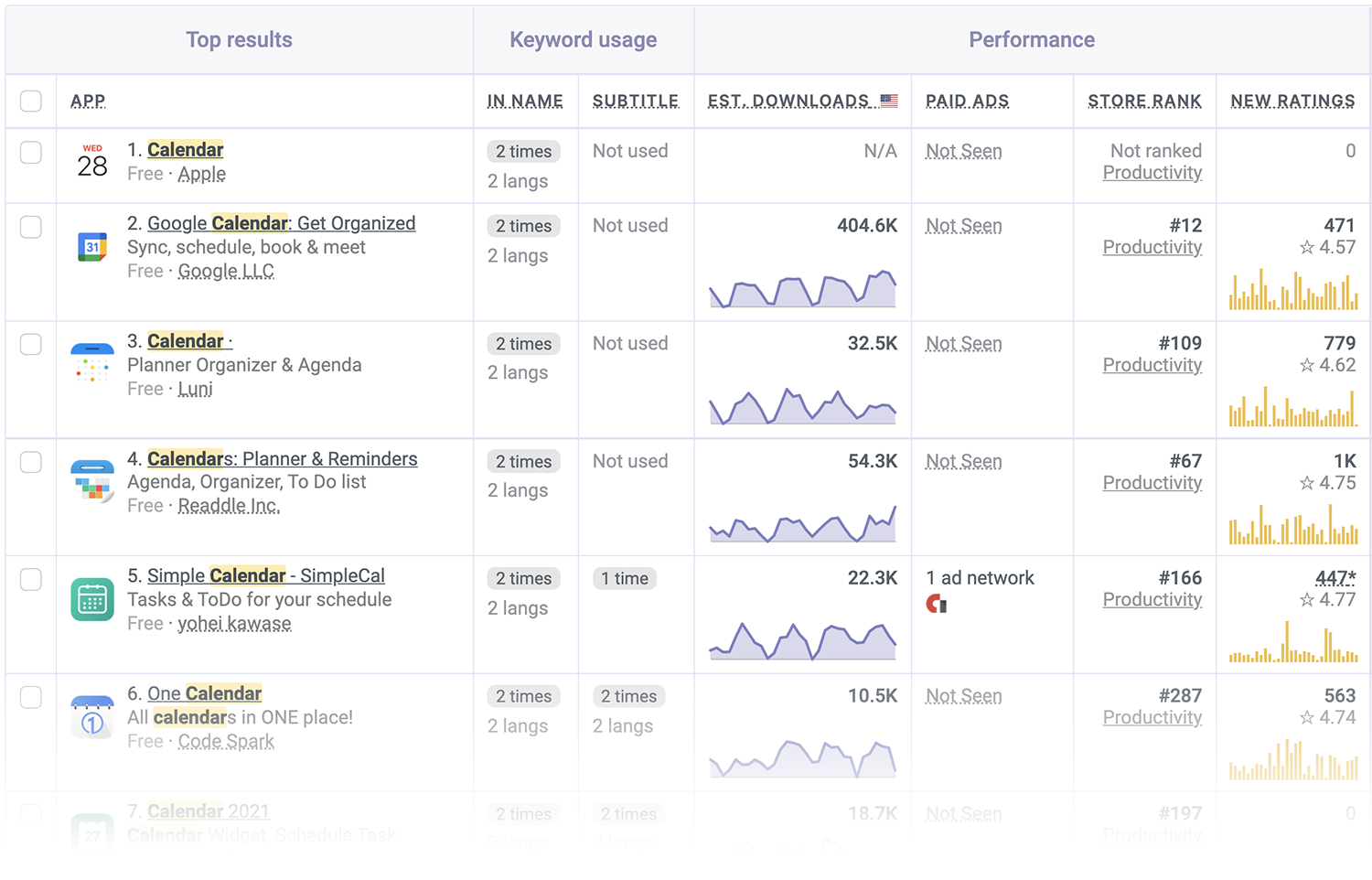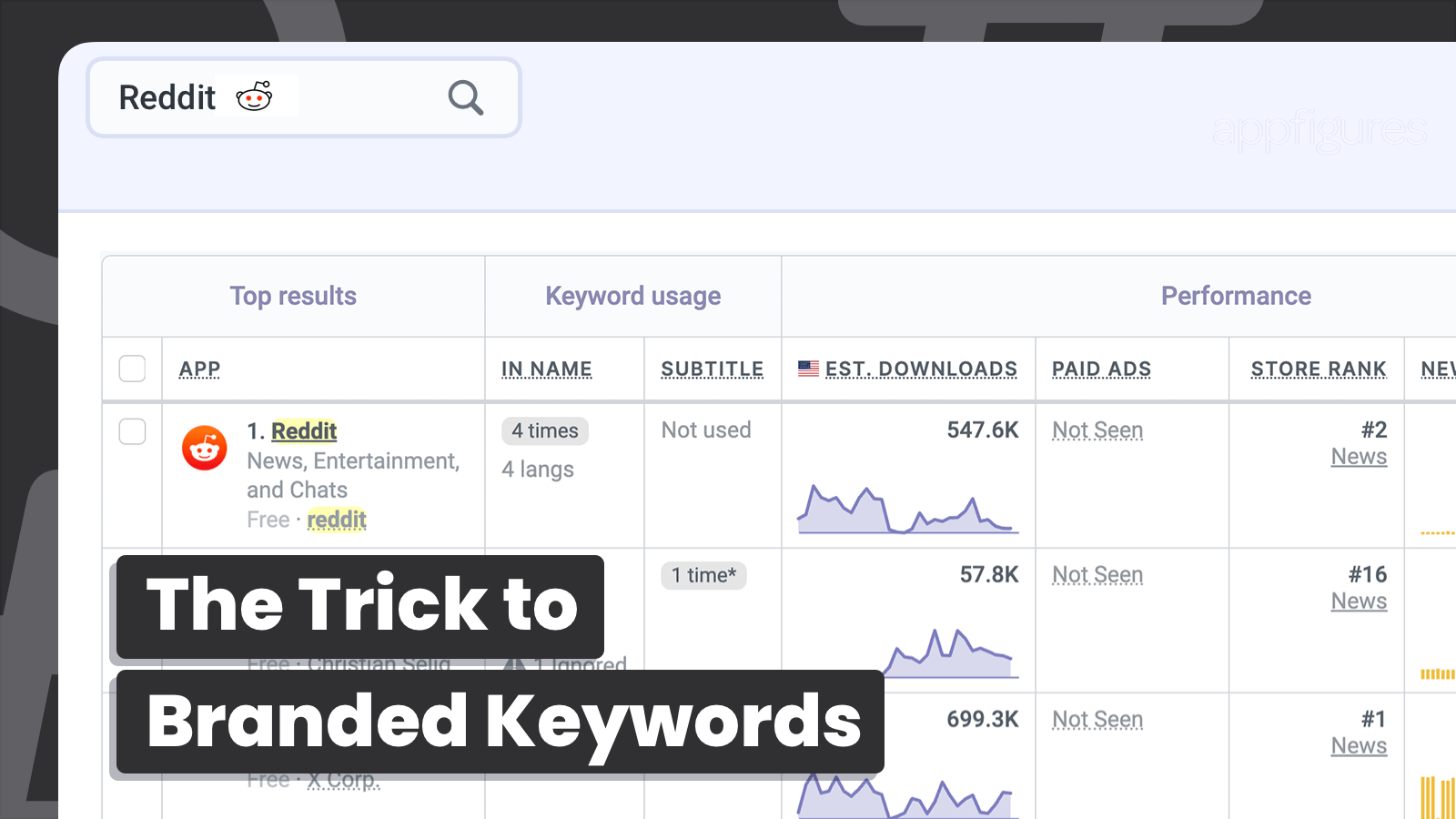#1 - Why Did Apple's App Store Algorithm Choose These Apps?
Have you ever looked at search results in the App Store and wondered why they're ranked the way they are? In this series of Keyword Teardowns we analyze how the algorithm works and highlight tips and tricks to help you rank higher.

I have a new type of article for you today!
Apple's and Google's search algorithms are black boxes and completely undocumented, but when you look at enough data, patterns start to emerge. I actively analyze search results to reverse engineer how the stores decide which apps to rank and how to rank them, and share what I find, including tips, tricks, and secrets, here for you to learn from.
Keyword: Calendar
I'm going to kick this off by looking at a keyword many of you who have meetings have probably looked at at least once. The format is simple: we're going to look at the search results, identify what's seemingly weird, and explain the logic behind it.
Calendar is an interesting keyword that's also very popular and fairly competitive. It's dominated by Apple's own app, which comes with every iPhone and iPad, but it's also hard-coded at the top of the search results in the App Store, whether you like it or not.
Let's look at everyone else.

At first glance, I see that Google has quite a bit of downloads and the term in the app's name, which easily explains why the algorithm put it at #2. I also noticed that #3 has fewer downloads than #4. Let's have a closer look at that.
At #3 we have Calendar · by Luni. It mentions the keyword in the app's name, and we estimate it got 32.5K downloads in the last 30 days. Below it, at #4, is Calendars: Planner & Reminders by Readdle, which we estimate got close to double the downloads and also mentions the keyword in its name.
If the algorithm only cared about downloads, which is what most developers believe (and isn't true), you'd expect Readdle's app to take the 3rd spot.
So, why doesn't it?
Monitor. Optimize. Grow
Get actionable insights in minutes!
Short answer: the algorithm is putting more weight on Luni's use of "calendar" than Readdle's because Luni isn't using any other words, which means the algorithm is giving all possible weight to one keyword, and that boosts it up the list even though it doesn't have as many downloads as other apps.
That was pretty easy and a good lesson you can take and use with your app to compete when you don't have enough downloads.
But there's one important consideration to make. When you focus so much, you leave out other important modifiers, which means ranking for them will be harder. If you're just starting out and are willing to iterate actively, you can focus on different terms for a short bit. The algorithm will remember.
What You need to Know
Downloads might be important for ranking in your category, but when it comes to search results, it's not what the algorithm looks at. First, you want to make sure you keywords are in the right place.
Are You Putting My Tips to Good Use?
App Store Optimization is part art and part science. I say it a lot, and I mean it. The art part is what I've been talking about in this Keyword Teardown and in my App Teardowns. The science part is where our simple and intuitive ASO tools come into play. See where your apps are ranked, track trends, snoop on competitors, get suggestions, here.

